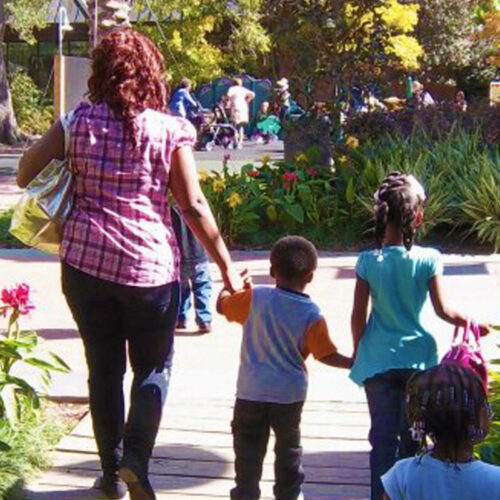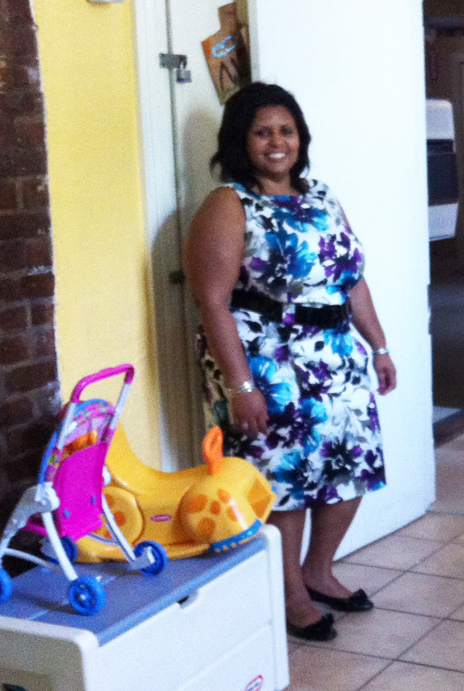
The New Orleans Women and Children’s Shelter is the largest organization in the city serving homeless women and children. (Photo https://nowcs.org/)
New Orleans … a city known for its jazz music, hospitality, and delicious food. Every year, the city brings in thousands of individuals to attend its many festivals, Mardi Gras, and other world-renowned events. However, New Orleans isn’t immune to its hardships, and one problem the city experiences is all too common across the nation: homelessness.
Earlier this spring, I had the pleasure of speaking with the Development Director of the New Orleans Women and Children’s Shelter, Melissa Tyler. Due to ongoing COVID-19 restrictions, Melissa and I spoke over the phone, and discussed the function of the shelter both before and during COVID, as well as how the shelter has managed to have zero cases of COVID0-19 — yes, zero — since the pandemic began.
The New Orleans Women and Children’s Shelter was founded back in 2007, originally as The New Orleans Women’s Shelter, before expanding to include children in its name in 2014. The people they provide for come from all different backgrounds, and two-thirds of the individuals they help are children. However, they are more than prepared to accommodate all who enter their facility. Melissa recalls having to purchase dog food for service animals and feeding tubes for children with special needs, among other obstacles.
“Everyone is different,” she says. “It is our job to help people in any way that they need.”
The “feather in their cap” since last March is their ability to protect their residents; they have had no COVID-19 cases. Handwashing signs for the kids and hourly cleaning of high-touch surfaces are just some of the many health standards they’ve established.
“Everything you can think of, we did!”
The organization functions as a case-by-case shelter. It is partially federally funded, so the goal is to get people in and out as quickly as possible based on the housing first model. In essence, the housing first model affirms that the best way to help someone struggling with homelessness is to get them into a home, then to help them with all the other components — learning to manage their finances, establishing budgeting routines, etc. While most people stay an average of 35-45 days in the shelter, they won’t put anyone else out of the shelter. If a family or an individual needs to stay longer, they stay longer. Transition assistance programs ensure extensive case management beyond the average stay, and resources are accessible based on each individual’s needs.

Dawn as one of the young faces of homelessness in New Orleans (Photo by Nora Daniels)
Depending on the time of year, the number of people residing in the shelter is likely to fluctuate. During income tax season, people at risk of homelessness are likely receiving tax refunds which, especially if the family has multiple children, can be sizable. Thus, February through April is often their slowest month. However, for every one adult in the shelter, there are typically two children, meaning the place is never truly quiet. Nonetheless, tax refunds can help pay for living expenses, which consequently reduces low-income families’ risk of homelessness.
I wasn’t able to visit the shelter itself due to COVID-19, but Melissa describes it as family friendly, clean, and run with compassion. They have a zero tolerance for drugs, weapons, and violence, and work hard to maintain a healthy environment for the families staying there, especially the children. As stated on its website, the shelter is “dedicated to creating a safe, secure and stable environment where classes, tools and resources build the pathway to success.”
While the shelter is partially federally funded, there is no shortage of support needed. Federal funds cannot possibly cover the expenses of running a shelter, especially one with an emphasis on providing stability, safety, and security. The shelter currently does not use volunteers, in an effort to avoid COVID-19 cases, but there are certainly other ways to help. When I asked Melissa what could be done to provide external support, she said with a laugh that “cash is king!” Donations are crucial to ensure that each individual is given adequate care. To donate to The New Orleans Women and Children’s Shelter, please click here. While issues of access and equity are certainly the underlying causes of homelessness, The New Orleans Women and Children’s Shelter has worked tirelessly to provide security and safety for all kinds of families in New Orleans, and there will always be a need for support from our community to help positively impact the lives of people who need it.
Rose Corcoran is a student in the Digital Civic Engagement class at Tulane University. You can reach her at mcorcoran@tulane.edu.
 NOLAbeings Multimedia artist Claire Bangser created NOLAbeings as a portrait-based story project that marries...
NOLAbeings Multimedia artist Claire Bangser created NOLAbeings as a portrait-based story project that marries...  Voodoo in New Orleans: Reviving history: New Orleans fortune telling This article takes a deep dive into the history of Voodoo in New Orleans, its hybridization with Catholicism, and its present-day place in the city's culture. The author visits fortune-tellers in the French Quarter, using their guidance as a tool for introspection rather than a deterministic predictor of the future. Through her experiences in New Orleans, the author feels a mystical connection to both the past and the future.
Voodoo in New Orleans: Reviving history: New Orleans fortune telling This article takes a deep dive into the history of Voodoo in New Orleans, its hybridization with Catholicism, and its present-day place in the city's culture. The author visits fortune-tellers in the French Quarter, using their guidance as a tool for introspection rather than a deterministic predictor of the future. Through her experiences in New Orleans, the author feels a mystical connection to both the past and the future. 